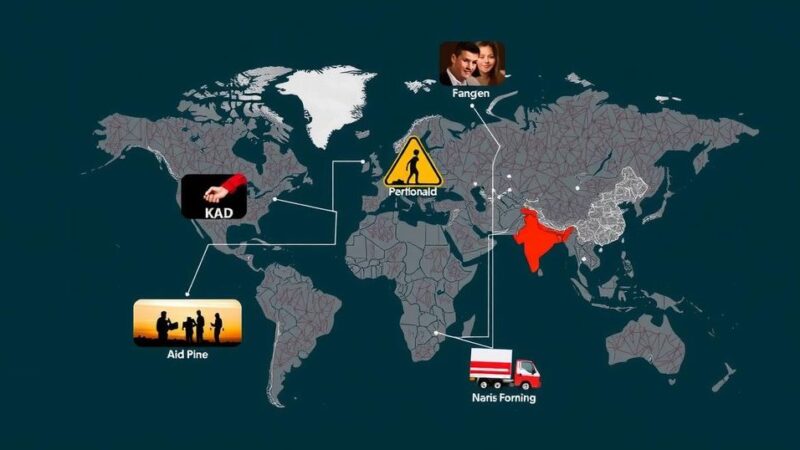Israel has launched limited ground operations in southern Lebanon against Hezbollah after a significant escalation in tensions, following the killing of a key group leader. The U.S. has expressed support for Israel’s actions. The situation remains precarious as both sides prepare for continued conflict.
Early on Tuesday, the Israeli military announced that its ground forces had initiated a series of targeted ground operations in southern Lebanon. This military action, termed “limited, localized and targeted ground raids,” specifically aims at Hezbollah positions, marking a new phase in the ongoing conflict involving Israel and its Iranian-backed adversaries. The announcement was accompanied by expressions of support from U.S. Defense Secretary Lloyd Austin towards Israeli Defense Minister Yoav Gallant, specifically regarding the dismantling of attack infrastructure along the Lebanon-Israel border. Furthermore, Israeli Prime Minister Benjamin Netanyahu issued a stern warning to Iran on the same day, following a recent airstrike near Beirut that resulted in the death of a high-ranking Hezbollah figure, Hassan Nasrallah. In his first statements since the incident, Hezbollah’s deputy leader, Naim Qassem, confirmed the group’s intention to appoint a successor and persist in their struggle against Israel. Additional developments included Israel’s notification to the United States regarding the commencement of these ground operations, with the U.S. State Department confirming the information. Concurrently, Israel has proscribed three communities along its northern border with Lebanon as “closed military zones,” thereby restricting access to military personnel. Reports suggest that the Lebanese military is currently repositioning its forces in response to perceived threats from Israel. Moreover, the United Nations peacekeepers in Lebanon have encountered difficulties in conducting their patrols due to the ongoing Israeli airstrikes and retaliatory rocket fire from Hezbollah targeting Israel.
The recent escalation in military confrontations between Israel and Hezbollah signifies a troubling trend in Middle Eastern geopolitics, characterized by heightened tensions and violent exchanges. The conflict has its roots deep in a long-standing animosity between Israel and Hezbollah, with the latter being a Shiite militant group supported by Iran. Following the killing of Hezbollah’s leader, the group has experienced both vulnerability and determination to maintain its resistance against Israel. The involvement of international parties such as the United States further complicates the situation, as regional powers grapple with the implications of these military maneuvers.
In summary, Israel’s recent initiation of ground operations in southern Lebanon against Hezbollah represents a significant escalation in its ongoing conflict with Iranian-backed groups. The implications of this military action, coupled with international reactions, particularly from the United States, and Hezbollah’s determination to retaliate, indicate a period of increased volatility in the region. Observers will be closely monitoring the evolving dynamics as both military and diplomatic responses unfold.
Original Source: www.france24.com






